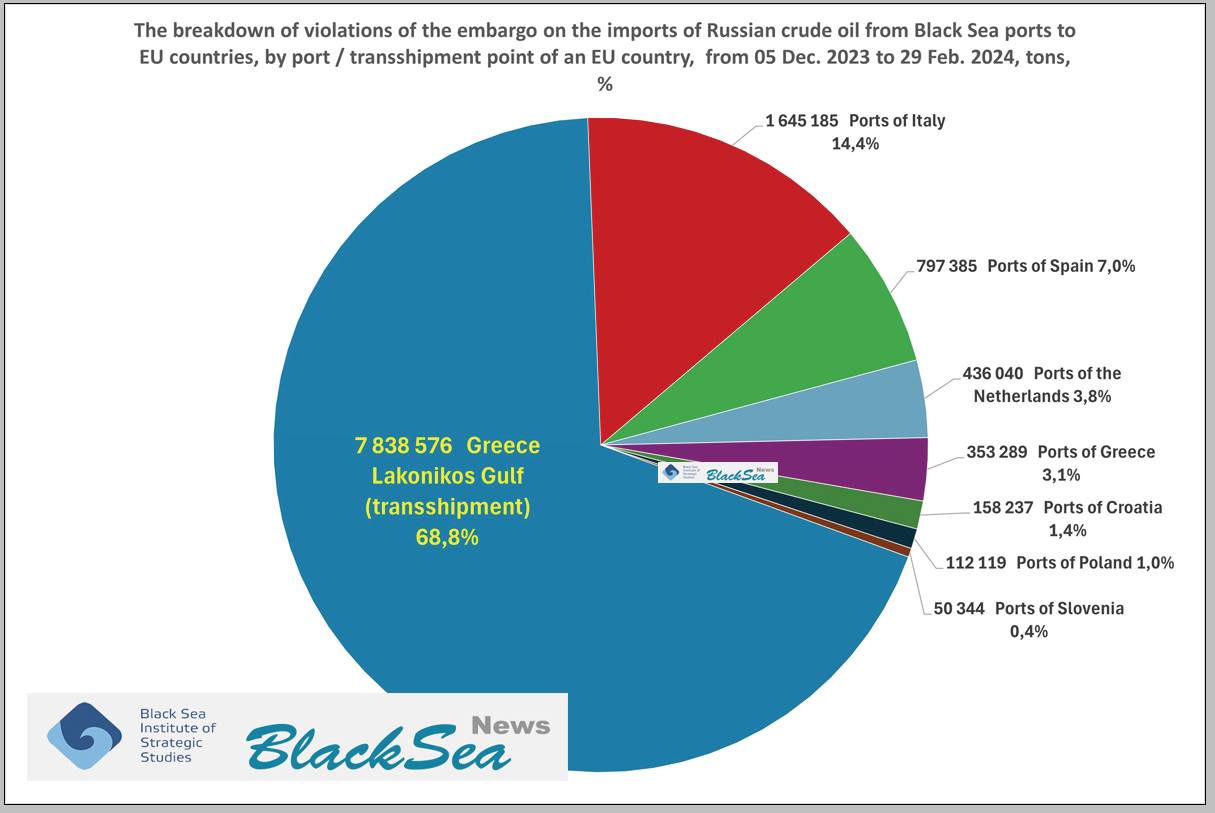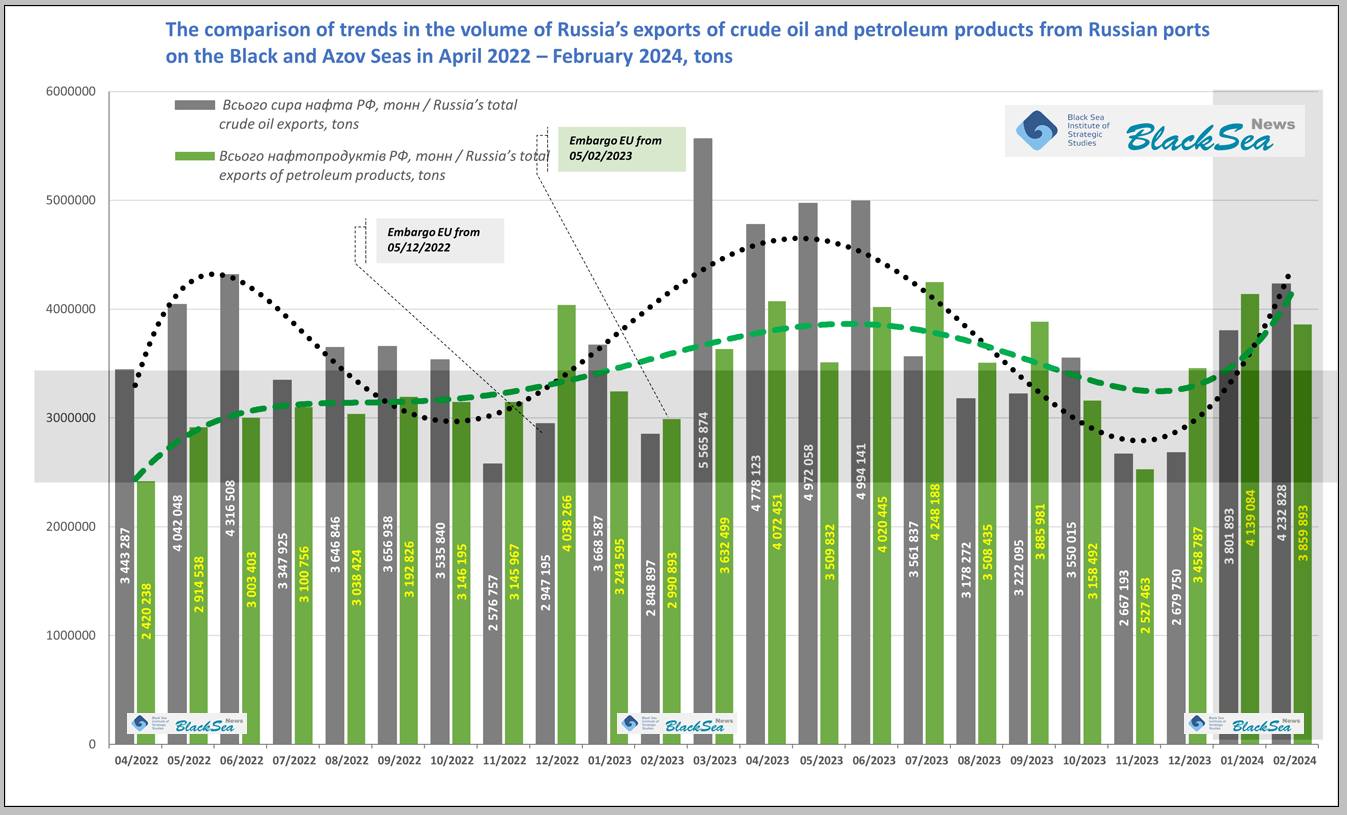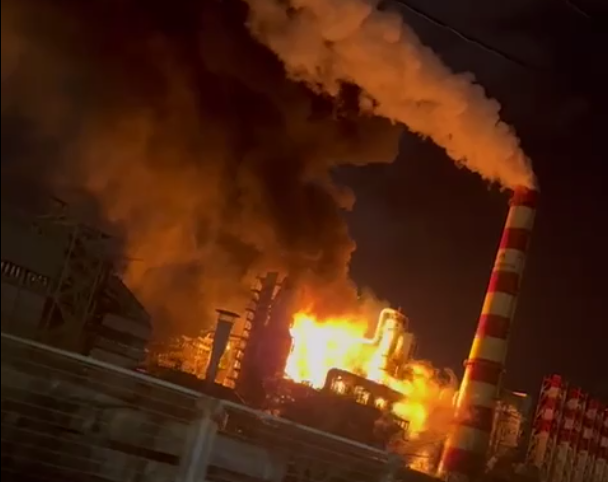Expert: Ukraine’s persistent drone strikes could disrupt Russian war machine, trigger fuel deficit
Despite Russia's vast oil production, its ability to produce fuel shouldn't be overestimated. The number of major oil refineries is limited to 32 and at least 10 of them have already been targeted by drones. Explosions have partially or fully disrupted their work.

Targeting critical oil refineries and storage facilities deep within Russian territory, Ukrainian drones have significantly reduced Russia’s crucial income from fuel exports. Experts suggest that intensifying these attacks could create severe fuel shortages, hindering Russia’s ability to sustain military operations.
First results of the campaign
Amid weak sanctions and in an attempt to disrupt Russia’s petroleum revenues, Ukraine started its campaign of long-range strikes against Russian oil refineries already in 2023. The campaign was intensified in 2024. Since the beginning of the year, at least ten large refineries have been damaged. Some of them experienced strikes several times. The number of major oil refineries in Russia is limited to 32, supplemented by dozens of small ones. Russia has already prohibited petroleum exports on 1 March 2024 for half a year to cover its internal needs.
The timing of attacks is also rightly chosen at the beginning of the spring sowing campaign. Currently, the demand for fuel rapidly increases in Russia’s agricultural sector. Last year, Russia experienced a fuel deficit during the August harvest, forcing the government to curb fuel exports.
Russia’s frontline troops are another major fuel consumer, and Ukraine hopes to achieve an eventual fuel shortage by targeting the central fuel depots along the front and in neighboring regions. Fuel from westernmost Russian refineries, which were hit first, goes to Ukraine, where it refuels enemy tanks, fighting vehicles, and aircraft. At the same time, the Russian economy suffers from the strikes, which reduces the occupiers’ ability to finance the army, manufacture weapons, and rain down missiles against Ukraine.
Russia produces more than 530 million tons of oil per year, of which about 280 million tons are processed by the Russians at their own facilities inside the country. Destroying these refining capacities would be very painful for Russia, creating the need to import more expensive fuel and export even more oil at cheaper prices. Ukrainian attacks have already idled over 7% of Russia’s refining capacity in the first quarter of 2024. In response to refinery outages, Russia is set to increase its oil exports through Western ports by almost 200,000 barrels per day.
Prices of diesel and petrol are rising in Russia. If the dynamics of Ukrainian strikes at refineries continue, then Russia will be forced to adopt even more restrictions on exports. It has already started negotiations with Belarus regarding the increase in fuel imports.
Did the US ask Ukraine to stop drone strikes against Russian refineries?
On 22 March 2024, the Financial Times claimed that the US had warned Ukraine against continuing drone strikes on Russia’s oil refineries, citing concerns about rising oil prices and possible retaliation. The warnings were reportedly issued to senior officials in Ukraine’s security agencies.
In particular, the US has allegedly urged senior officials at Ukraine’s State Security Service (SBU) and Military Intelligence Directorate (HUR) that the drone strikes risk driving up global oil prices and provoking retaliation. Both agencies were behind the significant expansion of drone programs to target Russian assets on land. The US was also allegedly concerned that Russia could retaliate by destroying energy infrastructure relied on by the West, such as the CPC pipeline carrying Kazakh oil to global markets.
It is hard to verify whether these warnings indeed happened, while Ukraine denied it received any of these warnings and was urged to halt attacks on Russian oil refineries. Ukrainian President’s Advisor Mykhailo Podoliak denied FT’s report, dismissing it as “fake information” and asserting Ukraine’s right to target aggressors’ war capabilities under international law. Podoliak emphasized that Ukraine would not accept dictates on how to conduct the war after two years of the full-scale invasion.
Olha Stefanishyna, Deputy Prime Minister for European and Euro-Atlantic Integration, has said that oil refineries in Russia are legitimate targets for the Ukrainian military. Speaking at the Kyiv Security Forum, she added that Ukraine is acting in accordance with NATO standards.
One day after FT’s report, Ukraine conducted yet another drone strike against the Novokuibyshevsk oil refinery in Russia’s Samara Oblast, reportedly damaging the crucial primary oil refining column. The action demonstrates that either the US indeed did not issue any concerns regarding the strikes or that Ukraine disagreed to obey such concerns.
Can these strikes drive up oil prices?

Ukraine has been targeting mainly oil refineries, not oil production facilities or pipelines, meaning the strikes don’t affect Russian crude oil exports. Moreover, given Russia’s diminishing ability to refine oil, it will be forced to export even more crude oil, driving prices down.
Oil prices can change if Ukraine also starts hitting oil export facilities. But this step would be even more painful for Russia. It is reasonable to expect Ukraine to start hitting crude oil exports to disrupt Russia’s ability to finance the war, especially given the poor abidance of its own sanctions by the West, including the EU embargo on Russian oil.
According to Mykhailo Gonchar, Ukraine’s energy expert, and President of the Centre for Global Studies “Strategy XXI,” the arguments in the FT publication are absurd because Ukrainian drones did not hit oil extraction sites in Siberia.
“Production in Russia did not fall, and the export of crude oil even increased, despite the so-called sanctions,” he said.
Moreover, the CPC pipeline transporting crude oil from Kazakhstan to the Black Sea has a separate terminal for its shipment. It means that even if Ukrainian drones hit Russian port infrastructure extensively to stop Russian oil exports, the export of Kazakh oil can still be maintained. Of course, if Russia doesn’t conduct any sabotage, but this is already a question to Russia, not Ukraine.
“They are trying to turn arrows on us to cover up their weakness,” Honchar believes if the FT publication is valid. “And the weakness is that the American soldiers cannot cope with the Houthis, who drove the oil traffic from the Persian Gulf to a longer and more expensive route to bypass Africa.“
Ukraine refers to the weakness of sanctions as the reason to conduct strikes against Russia’s energy facilities and stop Russia’s ability to finance the war
The Ukrainian government didn’t officially state this argument, except for constant reiteration that sanctions policy against Russia should be strengthened. At the same time, it is widely accepted in Ukraine, and numerous experts say that the only way to disrupt Russian state income and ability to finance war is to destroy Russian energy exports, including oil, gas, and fuel exports. For example, Ukrainian retired colonel Petro Chernyk praised strikes against oil refineries, saying that Ukraine needs to scale up these strikes to completely knock out Russian infrastructure, providing fuel and money for the army.

Andriy Klymenko, head of Ukraine’s Black Sea monitoring group and the Black Sea Institute of Strategic Studies, said that Western sanctions against Russian oil are routinely violated and Russia only increases its oil exports, the main source of Russia’s state budget revenue.
According to Klymenko, the EU and the US do not entirely fulfill or adequately monitor the sanctions. For example, according to the monitoring, only between 5 December 2023 and 29 February 2024 and only through Black Sea Ports, Russia exported to the EU 11.4 million tons of Russian crude oil, which is 82.9 million barrels, despite an embargo prohibiting this type of exports.
According to Ukraine’s Black Sea Monitoring Group, 68.8% of Russian oil exported to the EU through Black Sea ports in December-February was delivered to the raid transshipment in the Gulf of Laconia near the coast of Greece. This transshipment is located within Greece’s exclusive maritime economic zone, where only the Greek authorities have the authority.
In the second place are direct visits of tankers with Russian crude oil to Italian ports. A tanker leaves the Russian port and goes directly to the Italian port. The volume of such Italian (mainly Sicilian) violations amounts to 1.6 million tons, or 14.4% of Black Sea exports violating sanctions. Russian oil, which went to Italy, was received by ports MILAZZO, AUGUSTA, TRIESTE, TARANTO, and SANTA PANAGIA. The Spanish ports of CARTAGENA and BILBAO also received Russian oil and the Dutch port of ROTTERDAM, Croatian OMISALJ, Polish GDANSK, and Slovenian KOPER.

The expert mentions that 94 tankers brought Russian oil to these EU ports during the period. 52 of them belong to Greek companies, 11 – to Turkish companies, 4 – to Russian, registered in Dubai, 4 – to Russian, registered in India, while the rest belong to companies from Moldova, Cyprus, China, Denmark, Malta, UK, Latvia, Indonesia, Malaysia.
Data regarding total Russian exports of crude oil and petroleum products through Black Sea ports demonstrates that these exports remain stable despite Western sanctions, reaching 4.2 million tons of crude oil exports and 3.9 million tons of petroleum products exports through Black Sea ports in February 2024.

The Black Sea remains the main Russian export route, even though some other export ways, in particular to India, have been recently disrupted by sanctions for the first time ever.
The most symbolic blow came as Indian refiners, Russia’s second-biggest oil customer after China decided to stop accepting crude cargoes on tankers owned by state-run Sovcomflot. The shipping giant had carried about one-fifth of Russia’s oil sales to India last year. Now its fleet of over 100 vessels is effectively shut out from that major market as refiners refuse to take on the sanctions risk.
Ukrainian strikes have been effective and, if scaled up, can destroy Russian energy infrastructure
According to Gonchar, in most cases, the main technological elements of the oil refining system were affected, so a quick recovery of their work cannot be guaranteed. If the tanks with finished petroleum products or crude oil are hit, this does not stop the technological process of processing the oil. And refineries are so big that even a few dozen drones will not destroy any of them entirely. However, the Defense Forces of Ukraine very precisely hit those objects of primary oil processing on which further processing technology depends.
One of the most powerful was the damage to the Rosneft oil refinery in Tuapse. This refinery is the most capable in Russia and one of its most potent installations in the world was disabled. Only this plant had this particular installation. Others, as a rule, have several installations of different capacities. In Tuapse, Russians rushed to build the largest and most productive export-oriented enterprise. That’s why they installed one high-power ELOU-AVT installation (electric desalination and atmospheric vacuum tube installation). Therefore, the plant has not been functioning for almost two months, and it is unknown how much longer it will be under repair.

On 12 March 2024, drones hit the technological installation of the Nizhny Novgorod Refinery, which provided about half of the production of this oil refinery. In December 2023, there were problems with the failure of foreign-made compressor equipment at this plant. This means that it has very serious problems and is one of the five largest refineries in Russia.
The strikes also involved oil depots in Russia’s westernmost regions, destroying tons of fuel.
“The chain is as follows: the plant processes oil, produces fuel, and then it is supplied to potential consumers, but before that, it is concentrated closer to the consumer at oil depots – In tanks located in the urban area or separately behind it. That is, oil depots are facilities where fuel is stored wholesale. They are called “oil depots,” but there is no oil there – there is gasoline, diesel, jet fuel. Therefore, they are also subject to destruction. This is very important in the context of restraining the enemy: just as there can be ammunition starvation; there can also be fuel starvation if supply lines, fuel storage sites (oil depots), and production sites (oil refineries) are cut off.“
Russia has over 70 oil refineries, but the main large ones are 32. And more than a dozen significant refineries have already been affected, Gonchar said.
“This does not mean that they have completely stopped their work, but it will be difficult for them to work under the condition of our systematic efforts. After all, it is never about hitting a certain installation once and for all. The blows are conducted again and again.“
An essential factor of Ukraine’s success in the strikes and their impact is that the Russians cannot protect all objects from drones. At the same time, every powerful strike deep into Russian territory distracts Russia’s air defense forces from the front, and that works for the Ukrainian army, explains an officer in the Defense and Security Forces who decided to stay anonymous.
Background
Ukraine intensified its strikes against Russian oil refineries and fuel depots in January 2024. Since then:
- On 23 March, a fire broke out at the Novokuibyshevsk oil refinery in Samara Oblast after explosions, likely from a drone strike
- On 17 March, drones struck the Slavyansk oil refinery in Russia’s Krasnodar Krai.
- On 16 March, drones hit three oil refineries in Russia’s Samara Oblast.
- On 15 March, suicide drones attacked an oil refinery in Russia’s Kaluga oblast.
- On 13 March, drones hit an oil refinery in Ryazan.
- On 12 March, Ukraine carried out a coordinated drone offensive, hitting and damaging at least two Russian oil assets – a refinery in Nizhny Novgorod Oblast and a fuel depot in Oryol.
- On 6 March, an oil depot in Kursk came under drone attack.
- On 14 February, a Kursk oil depot was ablaze after a drone strike.
- On 9 February, kamikaze drones targeted oil facilities in two Russian regions, hitting the Ilsky and Afipsky oil refineries in the Krasnodar region and an oil depot in the Oryol region, causing a severe fire at the Ilsky refinery and damaging a primary processing unit valued.
- On 3 February, residents of Volgograd, Russia, reported two explosions, with the Governor stating that Russian air defense units allegedly intercepted drones targeting an oil refinery.
- A vacuum distillation column at an oil refinery caught fire in Russia’s Tuapse City overnight on 25 January.
- On 18 January, Ukrainian drones attacked an oil depot in the Russian city of Saint Petersburg.
- On 31 January, a drone hit an oil refinery in St. Petersburg.
- On 18 January, Ukrainian drones attacked an oil depot in the Russian city of Saint Petersburg.
Read also:
- Frontline report: Long-range Ukrainian drones target Russian fuel depots and airfields
- Ukraine denies FT’s report that US requested to halt strikes on Russia’s oil refineries
- Inside Russia’s “Special liberation operation”: how expat rebels raid Putin’s borderlands
- FPV drone tactics reshape conventional trench warfare in Russo-Ukrainian War
- One more Russian oil refinery exploded last night
- Media: Ukraine’s security service attacks 3 Russian refineries in Samara Oblast overnight



